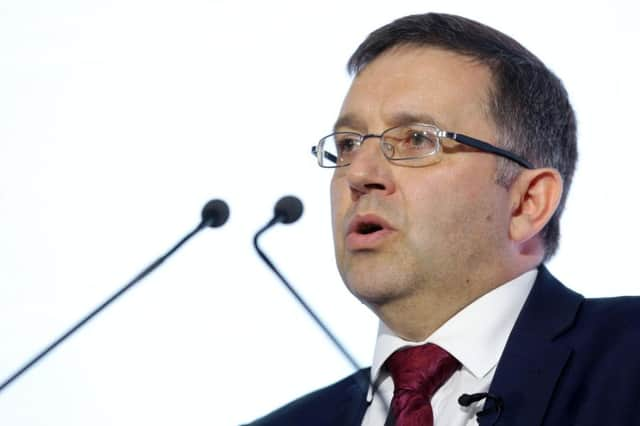Agriculture '˜peering over the precipice'


Mr Swann pointed out that for the last two and a half years it has been widely accepted that agriculture would be the sector most greatly impacted by Brexit.
He continued: “It’s inevitable therefore that it’s also the sector that would suffer the most in what was up to fairly recently considered a far-fetched outcome of a no-deal departure.
Advertisement
Advertisement
“Yet with less than 100 days to go, that’s what is looking increasingly likely. In fact, unless the EU backs down and stops treating the UK as if it is punishing us for having the audacity to want to leave, and unless the Tory Party can actually get a grip of itself and stop the inter-Party fighting, I think it is now a near certainty that we are heading to a no-deal Brexit.
“That would be the worst possible outcome, and for our agricultural sector it means facing a potentially cataclysmic event. Officially a no-deal Brexit will mean that overnight the UK will become a third country. Whilst that mightn’t sound too bad, in reality it means that overall the entire sector would have to be re-certified with rigorous health audits carried out on every processing plant. I’m aware that EU officials have privately warned that this will take at least six months,” added Mr Swann
“That in effect would be a six month trade embargo. Even if the UK decided to temporarily change the rules and not-without-risk allow EU food imports in without checks, we still couldn’t export to the EU without them as that decision lies entirely with the EU leaders and they are almost certain to rule out such a suggestion.
“If the unthinkable happened and WTO tariffs were imposed then it would lead to an immediate and potentially catastrophic event for the UK’s agricultural industry.
Advertisement
Advertisement
“If it was even possible the situation will likely be even worse for farmers in Northern Ireland. The impact of the land border on the local sector has never really been understood by the negotiators - there are so many agri-food related products sent across the border each and every day that if it was suddenly to be slammed shut on the 29 March then I really do fear we will be in a moment of fat lambs having no market and milk being poured down the drains. It really is that serious,” he said.
“That’s why I have again this week asked the Prime Minister to extend Article 50. This isn’t me trying to stall or delay Brexit - I voted leave - instead it’s to try to urge those in the middle of the UK-EU dealings to see sense and realise we simply can’t afford a no-deal Brexit. The current rhetoric coming from London, Dublin and Brussels however is pushing farmers ever closer to a precipice.”